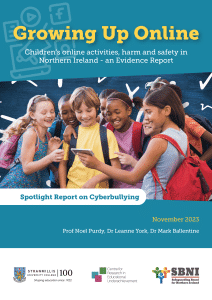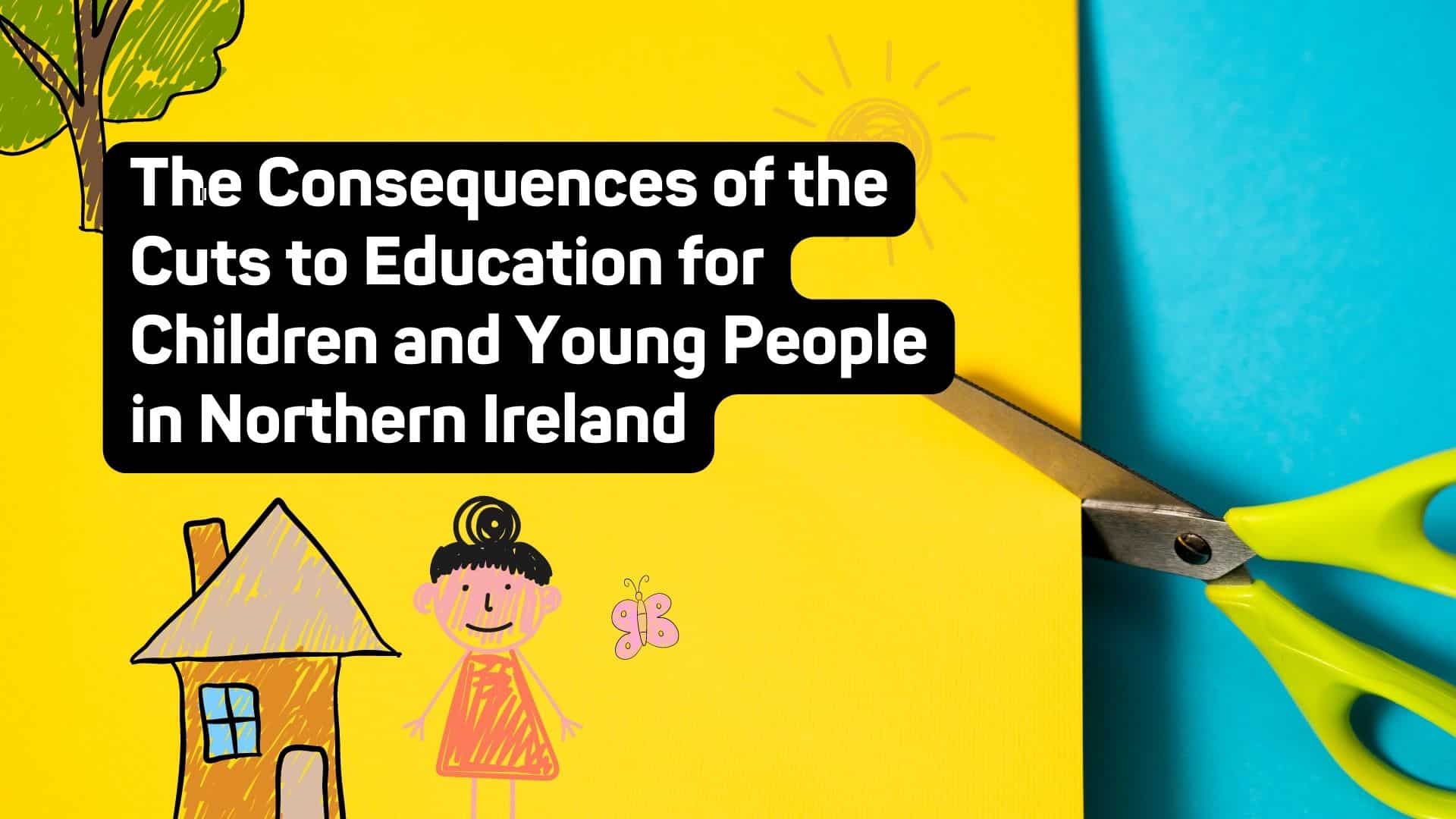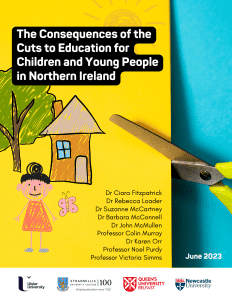To mark Anti-Bullying Week 2023, a new ‘Spotlight’ report highlights the nature and extent of cyberbullying among children and young people in Northern Ireland.
 Drawing out key insights from their recent large-scale research project Growing Up Online: Children’s online activities, harm and safety in Northern Ireland funded by the Safeguarding Board for Northern Ireland (SBNI), the research team at Stranmillis University College’s Centre for Research in Educational Underachievement (CREU) has shone a particular spotlight on bullying behaviours as reported by children and young people aged 8-18.
Drawing out key insights from their recent large-scale research project Growing Up Online: Children’s online activities, harm and safety in Northern Ireland funded by the Safeguarding Board for Northern Ireland (SBNI), the research team at Stranmillis University College’s Centre for Research in Educational Underachievement (CREU) has shone a particular spotlight on bullying behaviours as reported by children and young people aged 8-18.
The findings presented in this Spotlight report highlight the wide variety of online bullying behaviours which are experienced by children and young people in Northern Ireland, ranging from mean or nasty comments being made or sent to them and being excluded from WhatsApp groups, through to online blackmail, threats and being told to self-harm.
Among the key findings from the 6500 survey responses and interviews with almost 100 children and young people are that:
- A total of 13% of children aged 8-13 reported that someone had been mean to them online within the previous two months, with a higher incidence among girls than boys.
- Girls aged 14-18 were more likely than boys to report that mean or nasty comments had been made about them or sent to them, more likely to have had lies or rumours told about them, and more likely to have been excluded from an online group.
- Boys aged 14-18 were however more likely than girls to report that someone had tried to blackmail them, that they had been threatened online, or that their account had been hacked.
- LGBTQI+ young people aged 14-18 were more likely than heterosexual young people to report that they had received mean or nasty comments or that they had been threatened.
- Less than a third (31%) of 14-18 year olds said that they had reported the cyberbullying compared to almost half (47%) of 8-13 year olds. In both cases children and young people are more likely to tell their friends than family members or someone at school.
- While incidents of online bullying were reported to have very significant emotional impact on the children and young people concerned, it was striking how some of the young people appeared to accept a certain level of online risk and danger, and appeared confident in dealing with such incidents.
The authors of the Spotlight report welcome the news that the UK’s Online Safety Act was granted Royal Assent on 26 October 2023, which legally obliges internet and social media companies to do more to protect their users, with hefty fines imposed if they fail in their new duty of care.
Lead author, Prof Noel Purdy, commented, “This is an important report which provides fresh evidence of the extent of online bullying among our children and young people in Northern Ireland. In this Anti-Bullying Week, we hope that the findings will help inform educators and policy makers as they seek to keep our children safe online.”
The Growing Up Online Spotlight Report on Cyberbullying can be downloaded here: https://tinyurl.com/spotlightcyberbullying



